Editorial Board
The Editorial Board of the journal is responsible for maintaining the quality and integrity of the journal's content. The board members are experts in their respective fields and play a crucial role in the peer review process, ensuring that all articles published meet the highest academic standards.
The Editorial Board is committed to upholding the principles of academic excellence, transparency, and ethical publishing practices. They work closely with authors, reviewers, and the editorial team to facilitate a smooth publication process.
Editor-in-Chief
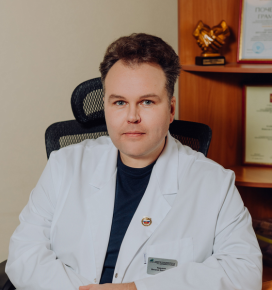
Vitaliy Viktorovich Kadyshev D.Sc. [Profile Link]
Editor-in-ChiefDepartment: Ophthalmogenetics Chair
Affiliation: Federal State Budgetary Scientific Institution
Designation: Head of the Ophthalmogenetics Chair
Email: vvh.kad@gmail.comCountry: Russia
Vitaly Viktorovich Kadyshev is an outstanding physician-scientist whose professional work has significantly influenced the development of domestic ophthalmology and medical genetics, refining approaches to the diagnosis and treatment of rare inherited eye diseases. After graduating with a medical degree from the Russian State Medical University in 2006, he completed his clinical residency at the Moscow Helmholtz Research Institute of Eye Diseases (2006–2008) and his postgraduate studies at the Research Centre for Medical Genetics (2008–2011). He defended his Candidate of Sciences dissertation in 2011 and his Doctor of Sciences dissertation in 2023, establishing himself as a recognized expert at the intersection of ophthalmology and genetics. Since 2016, he has held the highest qualification category in the specialty of "Ophthalmology." Throughout his years of clinical practice, Vitaly Viktorovich has conducted over 27,000 consultations for patients with severe rare ophthalmic pathologies, with a particular focus on rare and hereditary diseases. He developed a unique comprehensive examination system that significantly reduces diagnostic time and improves its accuracy. His contribution to advancing systems for timely therapeutic and preventive care, actively integrating the latest achievements in medical genetics, is especially noteworthy. The unique algorithms he developed for the early diagnosis of inherited ophthalmopathies—utilizing NGS sequencing and MLPA analysis in combination with innovative ophthalmic technologies (OCT angiography, adaptive optics)—have achieved unprecedented diagnostic accuracy (98.3%), even for the rarest forms of pathology. The patient monitoring system he created for individuals with hereditary eye diseases ensures treatment initiation at pre-clinical stages, which has prevented the development of irreversible changes in 68% of patients and reduced vision-related disability by 42% within the observed cohort. He also implemented a telemedicine consultation system in the field of ophthalmic genetics. He participated in organizing 18 unique specialized genetic-epidemiological expeditions to remote and new regions of Russia, providing care to patients and collecting scientific data on hereditary eye diseases. He created Russia's first nationwide database of patients with aniridia, albinism, and hereditary retinal pathology, encompassing 87 federal subjects. Vitaly Viktorovich's scientific output includes more 130 publications (more than 35 in international journals), 10 patents, 4 clinical guidelines, and 3 methodological manuals. The diagnostic protocols and treatment methods he developed have been implemented in 12 federal and 23 regional clinics, as well as in 3 partner medical institutions abroad, generating significant economic benefits. His mentoring and pedagogical activities are of particular importance. He has developed 4 educational courses, trained over 30 unique specialists for the regions, supervised 2 Candidates of Sciences, and founded a school of ophthalmic genetics. Annually, he conducts 12-15 master classes for physicians, residents, and medical students and participates in organizing all-Russian educational projects for doctors. His trainees now work successfully in leading medical centers across the country. His expert activities include membership in Russian and international professional ophthalmological and genetic societies, scientific editorship of medical journals, and participation in international professional associations. The conferment of the honorary title "Honored Doctor of the Russian Federation" upon Vitaly Viktorovich Kadyshev is a well-deserved recognition of his contribution to the development of Russian medicine and an important step in enhancing the prestige of Russian medical science, confirming that the country is home to specialists of world-class caliber. His medical practice serves as a model of dedicated service to medical science and practice, combining scientific boldness, clinical mastery, and organizational talent.

Bekadja Mohamed Amine MD
Editor-in-ChiefDepartment: Department of Hematology and Cell Therapy
Affiliation: Hematology and Cell Therapy, University of Oran, Oran
Designation: Professor
Email: bekadja.mohamed@univ-oran1.dzCountry: Algeria
I have been a specialist in Hematology since 1982 and a Professor of Hematology since 1999. I headed the Hematology and Cell Therapy Department from 2004 to 2023. I developed the autologous and allogeneic stem cell transplantation units, and the use of unfrozen stem cells.
Editorial Members

Despina Bazou PhD [Profile Link]
Editorial MemberAffiliation: Maynooth University, Maynooth
Department: Department of Biology
Designation: Assistant Professor
Email: despina.bazou@mu.ieCountry: Ireland
Dr. Despina Bazou was awarded a B.Sc. in Genetics and a PhD in Cancer Biology from Cardiff School of Biosciences. Following her PhD, she was awarded an EU Marie Curie Research Fellowship and joined the Centre for Research on Adaptive Nanostructures and Nanodevices (CRANN) at Trinity College Dublin (TCD), where she worked with the group of Prof. Radomski (Pharmacology Department, TCD) on the elucidation of flow-mediated tumour cell-induced platelet aggregation (TCIPA) using an ultrasound standing wave trap. She then joined the Edwin L. Steele Lab for Tumour Biology at Harvard Medical School/Massachusetts General Hospital (2011-2016) under the mentorship of Drs. Rakesh Jain and Lance Munn. Her research centred on how endothelial cells are triggered to sprout in the tumour microenvironment as well as on the development of novel microfluidic systems to deliver a 'tumour-on-a chip' for the screening of anti-angiogenic and anti-tumour agents. She then returned to Ireland, to the Mater Misericordiae University Hospital (MMUH), as the Haemato-oncology Translational Research and Education Lead where she led and coordinated the clinical and translational research strategy and activities from study design, set-up, execution through to completion. She joined the School of Biomolecular and Biomedical Sciences (SBBS) in 2024, as a Principal Investigator. In 2025, she joined the Department of Biology at Maynooth University as a tenured Assistant Professor and Head of the Translational Haematology Lab (https://www.thetranslationalhaematologylab.com) focused on the development of transformative precision medicine treatment solutions to address the pathophysiology of blood malignancies.
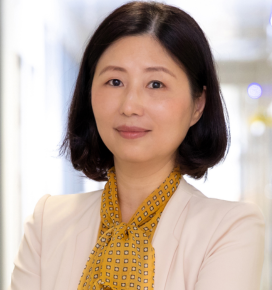
Cynthia Xiaohua Jiang MD, PhD [Profile Link]
Editorial MemberAffiliation: The Chinese University of Hong Kong, Hong Kong
Department: School of Biomedical Sciences
Designation: Faculty of Medicine
Email: xjiang@cuhk.edu.hkCountry: China
Prof. Cynthia Xiaohua Jiang graduated from the School of Medicine, Shanghai Jiao Tong University and completed her internship and residency at Rui Jin Hospital in Shanghai. She earned her PhD in Biomedical Sciences from the University of Hong Kong. Following her doctoral studies, Prof. Jiang undertook postdoctoral training at University of California, Los Angeles, where her research focused on the role of protein kinase cascades in cancer development. She then joined the University of Southern California, where she investigated the origins and genetics of pediatric cancers, employing human embryonic stem cells as an innovative research model. In 2013, Prof. Jiang established her laboratory within the School of Biomedical Sciences at the Chinese University of Hong Kong. Her primary research interests lie in stem cell biology and regenerative medicine, specifically the molecular regulation of stem cells, stem cell microenvironments, and stem cell therapies for neurological diseases. Prof. Jiang has published over 100 peer-reviewed papers in esteemed journals. She is currently a reviewer of more than 50 biomedical journals and is the editorial board member of 4 international journals.
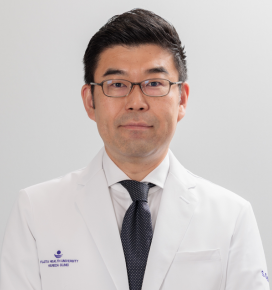
Seiji Ogawa MD, PhD [Profile Link]
Editorial MemberAffiliation: Fujita Health University Haneda Clinic, Tokyo
Department: Department of Clinical Regenerative Medicine
Designation: Associate Professor
Email: seiji.ogawa@fujita-hu.ac.jpCountry: Japan
Short Biography (Dr. Seiji Ogawa, M.D., Ph.D.) Dr. Seiji Ogawa, M.D., Ph.D., is an Associate Professor at the Center for Advanced Reproductive Medicine, Fujita Health University (Haneda Clinic, Tokyo, Japan). He is a board-certified obstetrician and gynecologist specializing in reproductive and regenerative medicine. Dr. Ogawa earned his Ph.D. in Obstetrics and Gynecology from Keio University School of Medicine, where he investigated molecular mechanisms of early embryonic development and genomic stability. His current clinical and research interests focus on assisted reproductive technologies (ART), oxidative stress and male infertility, and the application of regenerative medicine to infertility treatment. He has conducted pioneering clinical studies using platelet-rich plasma (PRP) and menstrual blood-derived mesenchymal stem cells (Men-MSCs) for ovarian rejuvenation and endometrial regeneration being the first in Japan to implement intraovarian Men-MSC therapy for infertility in 2023.
Dr. Ogawa is the recipient of the 2020 Academic Encouragement Award from the Japan Society for Reproductive Medicine and serves as a council member of several reproductive medicine societies in Japan. He continues to promote translational research bridging basic science and clinical innovation to improve reproductive outcomes for patients.
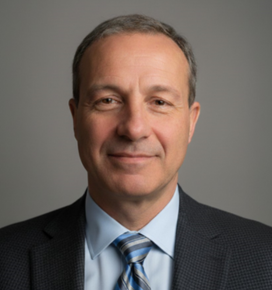
Ricardo Francalacci Savaris PhD [Profile Link]
Editorial MemberAffiliation: Federal University of Rio Grande do Sul UFRGS, Porto Alegre
Department: Department of Gynecology and Obstetrics
Designation: Professor
Email: ricardo.savaris@ufrgs.brCountry: Brazil
Prof. Ricardo Francalacci Savaris is Graduated in Medicine from Universidade Federal do Rio Grande do Sul (1990), master's in Reproductive Biology at the University of Edinburgh (1994) and finished his doctorate in Clinical Medicine at Universidade Federal do Rio Grande do Sul (1999). Postdoctoral studies at UFRGS (2001), University of California in San Francisco (2007) and the University of North Carolina, at Chapel Hill (2013) He has experience in Gynecological emergencies, acting on the following subjects: miscarriage, pelvic inflammatory disease, ectopic pregnancy. Currently, he is full professor at the ObGyn Department at Univ Federal do Rio Grande do Sul, Brazil ORCID: 0000-0002-2779-5443 SCOPUS ID: 6602308766 Researcher ID: B-4802-2013

Jefferson Luiz da Silva PhD [Profile Link]
Editorial MemberAffiliation: So Paulo State University UNESP, So Paulo
Department: Department of Biosciences
Designation: Professor
Email: jefferson.l.silva@unesp.brCountry: Brazil
Dr. Jefferson Luiz da Silva is a Brazilian immunologist and parasitologist whose research focuses on the interactions between hormones, the immune system, the intestinal microbiota, and inflammation. He earned his Ph.D. in Pharmacy and M.Sc. in Applied Immunology from the University of São Paulo (USP) and currently serves as a Collaborating Professor at the Institute of Biosciences, São Paulo State University (UNESP), Botucatu. His studies explore endocrine–immune regulation, mucosal immunity, and host–pathogen interactions, with applications in parasitic diseases and inflammatory disorders. Dr. Silva has authored several peer-reviewed articles and contributes to teaching and mentorship in immunology and microbiology.
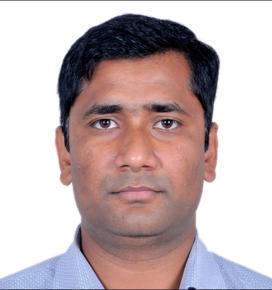
Ashok K Sah PhD [Profile Link]
Editorial MemberAffiliation: A Sharqiyah University, Ibra
Department: Department of Medical Laboratory Sciences
Designation: Assistant Professor
Email: ashok.kumar@asu.edu.omCountry: Oman
Brief bio-sketch:
Dr. Ashok Kumar Sah currently serves as an Assistant Professor in the Department of Medical Laboratory Science at the College of Applied Health Sciences, A’ Sharqiyah University, Oman. He is a certified Medical Laboratory Scientist through the American Society for Clinical Pathology (ASCPi). Dr. Sah has held various academic roles across several prestigious institutions in national and Internationally.
Dr. Sah obtained his Doctorate in Medical Laboratory Technology from Glocal University, India, after earning his Bachelor's and master’s degrees in medical laboratory technology (Science) from HNB Garhwal University (A Central University), India, in 2006 and 2013, respectively. His training encompasses a wide range of specialties, including Molecular Pathology, Clinical Biochemistry, Clinical Microbiology, Clinical Pathology, Immunology, Transplant Technology, and Cancer Biomarkers.
He has published 55 peer-reviewed research articles in renowned national and international journals, alongside five books and three book chapters, with notable publications in journals such as The Lancet, NPJ Clean Water (Nature), Biomarker Research, and Molecular and Cellular Biology, Life, Biomedicines, Diagnostics, Obesity surgery, etc. Dr. Sah has also shared his research at numerous national and international conferences, workshops, and symposia. With over 15 years of experience in both academia and industry at the national and international levels, Dr. Sah continues to be an active contributor to the field. Outside of his professional work, he enjoys reading, traveling, meeting new people, and exploring different communities and cultures. He is deeply committed to global public health and advocates for the principles of global citizenship.

